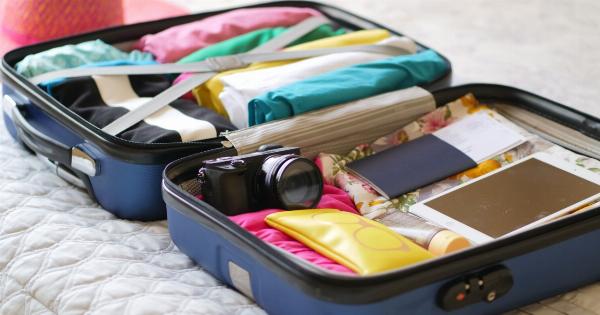When traveling, it’s important to be prepared for any health-related issues that may arise. Having a well-stocked travel medicine cabinet can help you handle minor illnesses and injuries while on the go.
Whether you’re embarking on a short weekend getaway or a long-term adventure, these eight essentials should be included in your travel medical kit.
1. Painkillers and Fever Reducers
Headaches, muscle pains, and fevers can quickly ruin your travel plans. Make sure to pack painkillers like acetaminophen, ibuprofen, or aspirin to alleviate any discomfort.
These medications can also help reduce inflammation and bring down fevers if you fall ill.
2. Antihistamines
Allergies can strike at any time, so having antihistamines on hand is crucial. They can provide relief from common allergic reactions like sneezing, itching, and hives.
Additionally, antihistamines can help manage symptoms of motion sickness, which is useful if you’re prone to feeling queasy during long journeys.
3. Anti-Diarrheal Medication
Traveler’s diarrhea is a common problem, particularly when visiting unfamiliar destinations. Carrying anti-diarrheal medication such as loperamide can help alleviate symptoms and allow you to enjoy your trip without gastrointestinal distress.
4. Antibacterial Cream or Ointment
A small cut or graze can quickly become infected if not properly treated. Having an antibacterial cream or ointment, such as Bacitracin or Neosporin, can help prevent infection and aid in wound healing.
Make sure to clean the wound thoroughly before applying the ointment.
5. Band-Aids and Sterile Dressings
Minor injuries are a common occurrence while traveling, so it’s essential to have adhesive bandages or plasters of various sizes in your travel medicine kit.
Additionally, packing sterile dressings, adhesive tape, and scissors can help you manage more significant wounds or injuries until you can seek proper medical attention.
6. Antiseptic Wipes or Solution
When soap and water are not readily available, antiseptic wipes or solution can be used to clean your hands or surfaces before treating a wound, applying medication, or handling food.
They are convenient and effective in minimizing the risk of infection.
7. Sunscreen and Insect Repellent
Protection from the sun’s harmful rays and pesky insects is essential during your travels. Pack a broad-spectrum sunscreen with a high SPF to shield your skin from UV damage.
Similarly, an insect repellent containing DEET or picaridin can help keep mosquito-borne diseases at bay.
8. Personal Medications and Prescriptions
If you have any pre-existing medical conditions, it’s crucial to bring an adequate supply of your regular medications on your trip.
Additionally, carry a copy of your prescriptions in case you need to refill them or explain them to a healthcare professional while abroad.
Remember to keep your travel medicine cabinet well-stocked and easily accessible throughout your trip. Before leaving, check the expiration dates of all medications and replenish or replace any outdated items.
Having these eight essentials readily available can help you handle common travel-related health issues and ensure a smoother, more enjoyable journey.





























